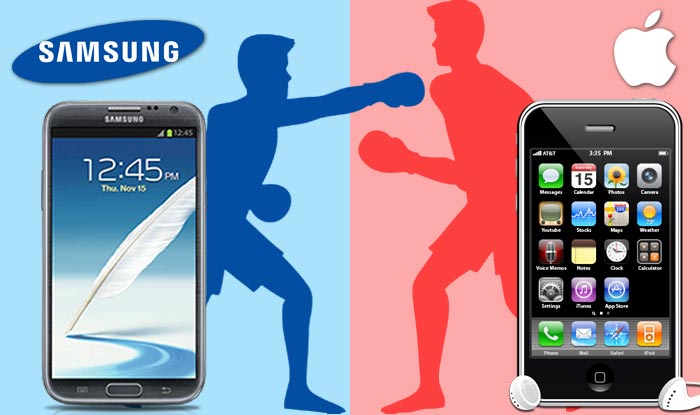Introduction: Smartphones have become an indispensible part of our daily lives in the digital age. For years, Apple and Samsung have consistently dominated the mobile market. While the competition between these brands is frequently focused on hardware, it is also important to consider their mobile software. In this article, we’ll look at how to compare the software on Apple and Samsung mobile devices, focusing on the key differences.
User Interface and User Experience
The user interface (UI) and user experience (UX) are crucial factors when comparing Apple and Samsung mobile software. Apple’s iOS boasts a minimalist and intuitive interface, known for its simplicity and ease of use. The consistent design language and smooth animations make navigating an iPhone a pleasant experience. On the other hand, Samsung’s One UI, built on top of Android, offers a more customizable experience. Users can tweak settings, customize themes, and even use split-screen multitasking. The choice here largely depends on personal preference; some prefer the streamlined iOS, while others opt for the flexibility of One UI.
App Ecosystem
Apple’s App Store and Samsung’s Galaxy Store are the primary hubs for downloading applications. Apple’s App Store is renowned for its strict quality control, resulting in a curated selection of high-quality apps. While this ensures security and reliability, it can also lead to some restrictions, especially for developers. Samsung’s Galaxy Store offers a wider range of apps, but it may require users to exercise caution due to a potentially higher risk of encountering low-quality or malicious apps. Here, Apple takes the lead in terms of app quality, while Samsung offers more variety.
Updates and Longevity
Apple is known for its commitment to providing regular software updates and supporting older devices for a more extended period. This ensures that even older iPhone models receive the latest features and security updates, increasing their longevity. In contrast, Samsung’s update cycle can vary depending on the device and region. Flagship Samsung devices usually receive timely updates, but older or budget models may not be as fortunate. For those seeking long-term software support, Apple has the upper hand.
Ecosystem Integration
Both Apple and Samsung have developed ecosystems around their devices. Apple’s ecosystem includes devices like the iPad, Mac, Apple Watch, and Apple TV, which seamlessly integrate with the iPhone. This tight integration allows for features like AirDrop, Handoff, and Continuity, enhancing the overall user experience. Samsung, while offering integration with its other devices, does not match the depth of Apple’s ecosystem. If having a harmonious ecosystem is a priority, Apple stands out.
Customization Options
Samsung’s One UI offers a higher degree of customization compared to Apple’s iOS. Users can personalize their device with themes, widgets, and third-party launchers on Samsung devices. iOS, while becoming more flexible over the years, is still more restrictive in terms of customization. If you crave personalization and tweaking your device to your heart’s content, Samsung’s software is the better choice.
Conclusion
Comparing the software of Apple and Samsung mobile devices ultimately comes down to personal preferences and priorities. Apple offers a seamless, user-friendly experience with a strong focus on quality control and longevity. In contrast, Samsung provides more customization options and a wider range of features for tech-savvy users who enjoy tweaking their devices.
When choosing between the two, consider what matters most to you: a tightly integrated ecosystem, regular software updates, a customizable experience, or a vast app selection. Both Apple and Samsung have their strengths, so the decision should align with your specific needs and preferences. Ultimately, both companies continue to innovate and evolve their software to provide the best possible user experience, making it an exciting time for mobile enthusiasts.
1) Which mobile operating system is better: iOS or Samsung’s One UI?
This question gets to the heart of the software debate. It’s important to note that “better” depends on personal preferences and needs. iOS offers a streamlined, user-friendly experience, while One UI provides more customization options. The choice between them depends on whether you prioritize simplicity or customization.
2) Do Apple or Samsung devices receive more frequent software updates?
Software updates are crucial for security and getting the latest features. Apple is known for its regular updates and supporting older devices, often outperforming Samsung in this regard. However, Samsung’s update frequency varies by device, with flagship models receiving more timely updates.
3) Which app ecosystem is safer: Apple’s App Store or Samsung’s Galaxy Store?
Both app stores have their strengths and weaknesses. Apple’s App Store is renowned for its strict quality control, which reduces the risk of encountering malicious apps. Samsung’s Galaxy Store offers a broader range of apps but may require users to exercise more caution. Users should prioritize app quality and security based on their needs.
4) How do the ecosystems of Apple and Samsung differ?
Apple’s ecosystem includes a range of devices like the iPhone, iPad, Mac, Apple Watch, and Apple TV, designed to work seamlessly together. Samsung also offers integration with its devices, but it may not match the depth and synergy of Apple’s ecosystem. Understanding these differences can help users choose the right brand for their needs.
5) What are the advantages and disadvantages of each software in terms of customization?
Apple’s iOS has become more customizable over the years but still maintains certain restrictions, offering a more uniform user experience. In contrast, Samsung’s One UI provides a high degree of customization, allowing users to personalize their device extensively. Users should consider their desire for customization when deciding between the two.


